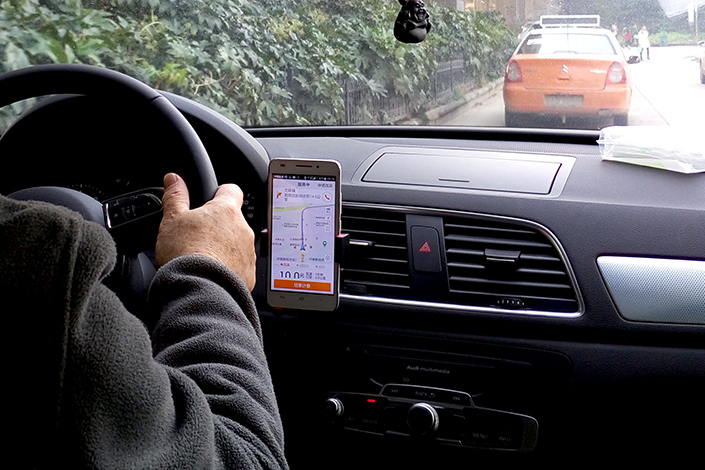Inner Mongolia City Becomes First in China to Halt Ride-Hailing

(Beijing) — One of the largest cities in the Inner Mongolia region has halted ride-hailing operations, including those of market leader Didi Chuxing, a week after protests from taxi drivers blocked major roads.
This is the first time a local government in China has banned the online service since it was legalized nationally in November.
The transportation authority in Baotou ordered ride-hailing firms to suspend all operations in the city because they have “yet to receive transportation licenses as stipulated by law,” the agency said Wednesday on its official WeChat social-media account.
The authority ordered “unauthorized platforms,” including Didi and LeEco-backed Yidao, to cease service indefinitely, reacting to a protest last week from taxi drivers, an incident that was mentioned in a notice published by Baotou transportation police a day before the ban.
Around the same time, a document with the letterhead of the Baotou Transportation Department and addressed to Didi was leaked online, stating: “Taxi drivers have gathered and petitioned, causing a social disturbance because you lack the necessary certifications. … If the situation worsens because you do not promptly cease operations, you must bear the negative consequences.”
Beijing-based Didi received a national operating license in March, giving legitimacy to its online app across China. But new laws stipulate that each ride-hailing company must also negotiate separate transportation licenses with local governments in order legalize operations there.
Nationwide regulation of the industry has allowed substantial local discretion, and governments at different levels have given various interpretations of the rules. Baotou said it is still deliberating its interpretation of the regulations.
First-tier cities like Beijing and Shanghai have rolled out stringent regulations that outlawed more than 9 in 10 Didi drivers. Lower-tier cities and towns have been more generous toward online car-hailing, which has boosted employment and forced an overhaul of traditional taxi services.
Analysts believe that local governments’ succumbing to pressure from taxi drivers will send the wrong message, and that the arbitrary decision to suspend services may go against the law. “This is almost like saying, ‘As long as you create some mayhem, your demands will be met,’” said Zhao Zhanling, legal consultant for the Internet Society of China, a government research group. “The government should not take sides with those better at making an outcry.”
Contact reporter April Ma (fangjingma@caixin.com)

- 1Cover Story: China Carves Out a Narrow Path for Offshore Asset Tokenization
- 2Drownings Shake Chinese Enthusiasm for Travel to Russia
- 3Over Half of China’s Provinces Cut Revenue Targets
- 4Li Ka-Shing’s Port Empire Hit by Forced Takeover Amid Panama Legal Dispute
- 5In Depth: China’s Mutual Fund Industry Faces Overhaul After a Banner 2025
- 1Power To The People: Pintec Serves A Booming Consumer Class
- 2Largest hotel group in Europe accepts UnionPay
- 3UnionPay mobile QuickPass debuts in Hong Kong
- 4UnionPay International launches premium catering privilege U Dining Collection
- 5UnionPay International’s U Plan has covered over 1600 stores overseas




